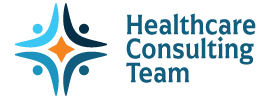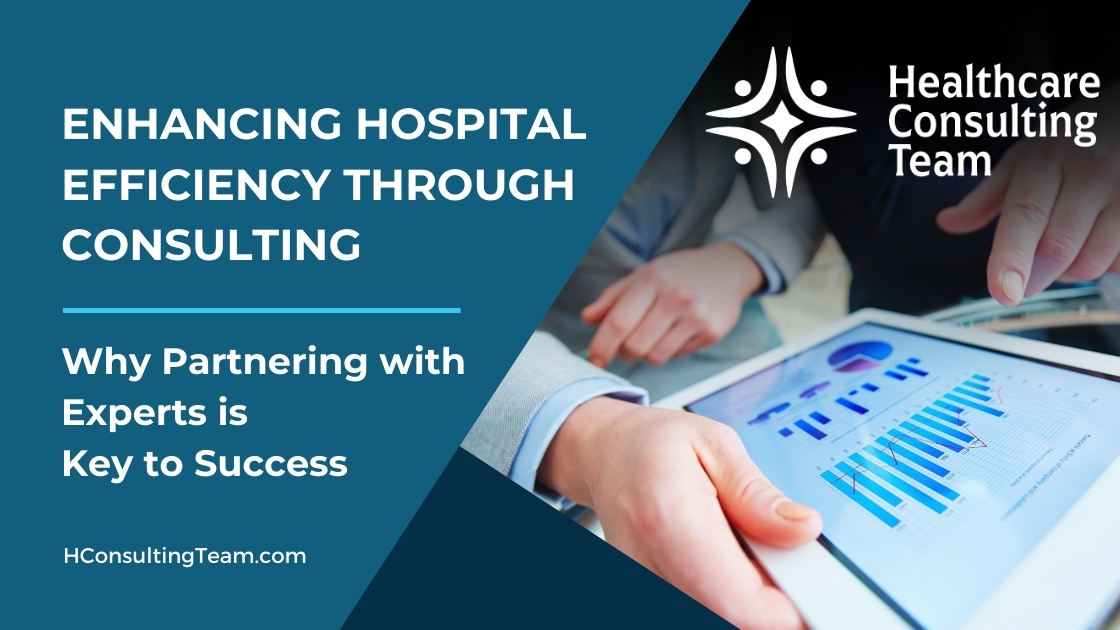Enhancing Hospital Efficiency Through Consulting Services
Why Partnering with Experts is Key to Success
In today’s fast-paced and highly regulated healthcare environment, hospitals face constant pressure to improve patient care, increase operational efficiency, and manage costs effectively. Many hospitals struggle to balance these goals without compromising on quality, patient satisfaction, or compliance. This is where healthcare consulting services can make a big impact, helping hospitals streamline their processes, implement best practices, and create a solid foundation for sustainable growth.
Let’s explore how healthcare consulting services can benefit hospitals, improve their bottom line, and ultimately enhance the quality of care provided to their communities.
1. Optimizing Revenue Cycle Management (RCM)
Revenue cycle management is one of the most critical functions in any hospital, as it directly impacts financial health. A streamlined RCM process ensures that billing is accurate, timely, and compliant with complex payer requirements. Healthcare consultants can help hospitals identify bottlenecks, reduce claim denials, and implement more effective billing workflows. These improvements can result in faster reimbursements, increased cash flow, and minimized administrative burden on in-house teams.
2. Enhancing Operational Efficiency
Healthcare consulting firms specialize in assessing current operational workflows and identifying inefficiencies that may hinder productivity. Consultants bring fresh perspectives and innovative strategies to improve processes across various departments. By implementing best practices in staffing, scheduling, and patient flow management, consultants can help hospitals reduce wait times, improve resource utilization, and ultimately deliver better patient outcomes.
3. Improving Patient Experience and Satisfaction
Patient experience is no longer just a goal; it’s a necessity for hospital success. Healthcare consultants can guide hospitals in enhancing the patient experience from the moment a patient arrives to their post-discharge follow-up. This could involve staff training, redesigning patient interactions, and leveraging technology to create seamless patient journeys. Improved patient satisfaction leads to better outcomes and strengthens the hospital’s reputation in the community.
4. Navigating Regulatory Compliance and Risk Management
The healthcare industry is governed by strict regulatory frameworks that constantly evolve. Maintaining compliance with HIPAA, CMS, and other federal or state regulations is a complex and resource-intensive process. Healthcare consultants can support hospitals by assessing their current compliance programs, identifying potential gaps, and providing the necessary training and resources to mitigate risk. This not only reduces the chance of costly fines but also builds a culture of compliance and patient safety within the organization.
5. Leveraging Data for Strategic Decision-Making
Data-driven decision-making is increasingly crucial in healthcare. Many hospitals collect vast amounts of data but may lack the expertise or tools to turn it into actionable insights. Healthcare consultants can help hospitals leverage data analytics to monitor key performance indicators (KPIs), track patient outcomes, and forecast future needs. By adopting data-informed strategies, hospitals can make proactive decisions that improve efficiency, patient care, and financial performance.
6. Implementing Technology Solutions
From electronic health records (EHR) to telemedicine, technology plays a pivotal role in modern healthcare. However, integrating new technology often presents a significant challenge. Healthcare consultants can assist hospitals in selecting and implementing technology solutions that align with their unique needs and goals. This includes training staff, ensuring seamless integration with existing systems, and optimizing workflows to maximize the benefits of the new technology.
7. Strengthening Workforce Management
Hospitals face staffing shortages, high turnover, and burnout, all of which affect patient care and hospital efficiency. Healthcare consultants can help hospitals develop workforce management strategies that address these challenges. By analyzing staffing models, optimizing schedules, and creating robust onboarding programs, consultants enable hospitals to retain skilled professionals and maintain high standards of patient care.
Healthcare consulting offers hospitals a valuable resource for addressing the many challenges they face. From improving revenue cycle management to enhancing the patient experience, consultants provide the expertise and strategic insights needed to drive growth and success in today’s competitive healthcare landscape. By partnering with healthcare consultants, hospitals can navigate change more effectively, strengthen their operations, and focus on what matters most: delivering high-quality care to their patients.
Healthcare consulting can be transformative for hospitals looking to increase efficiency, boost revenue, and deliver better patient outcomes. For hospitals interested in exploring these benefits, partnering with a knowledgeable healthcare consulting team like Healthcare Consulting Team can be a game-changer in achieving their strategic goals.
Healthcare Consulting Team
At Healthcare Consulting Team, we specialize in providing comprehensive revenue cycle consulting services tailored to healthcare facilities of all sizes. Our expert team is dedicated to optimizing your revenue cycle processes to ensure maximum efficiency, compliance, and financial performance. By partnering with us, healthcare providers can focus on what they do best—delivering exceptional patient care—while we handle the complexities of revenue cycle management. Learn more about our consultants at https://hconsultingteam.com or email us at info@hconsultingteam.com.


